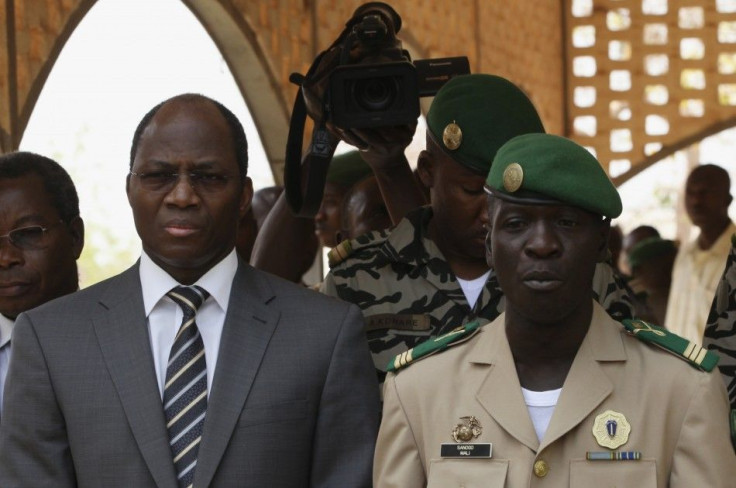Mali Coup Leaders Accuse Ousted President Toure Of Treason

Since the military-led coup last month, the situation in Mali has become increasingly unstable as coup leaders are now accusing the ousted President Amadou Toumani Toure with high treason.
Captain Amadou Sanogo, leader of the coup, has been calling the shots since the military took power, but said he plans to hold a meeting to discuss Mali's future.
We call the entire political class and all civil society actors to... a national meeting which will begin on April 5, Capt. Sanogo told journalists.
This meeting, he said, would decide what will be best for the country in a consensual, democratic fashion.
He then added that the ousted President Toure, could be the object of judicial proceedings for high treason and financial wrongdoing.
It remains unclear what is behind these allegations but in all likelihood the April 5 meeting will provide more details into these serious accusations.
This is only one in a long line of issues that Mali now faces. The military organized the coup on the grounds that the existing government had not done enough to fight off the Tuareg rebels in the north.
However, since then, rebel fighting has not abated; on the contrary it has increased significantly and created grave humanitarian problems throughout Mali. This is particularly true in the northern regions where Tuareg rebels have captured more cities, including Timbuktu over the weekend. Fighting has forced thousands to flee their homes.
According to a spokesperson for the office of the UN High Commissioner for Refugees (UNHCR), Melissa Fleming, many in Mali fear that the coup has exacerbated the fighting.
Most tell UNHCR staff that they fled because they were worried about armed robbers and feared there would be more heavy fighting in the north, while some said they left their homes due to lack of food, she said.
Others told our teams that they decided to leave Mali when hopes for a negotiated peace between the government and Tuareg rebels in the north faded after the coup.
The humanitarian concerns have prompted increased urgency and pressure from the international community for coup leaders to restore order.
The United States urgently calls on all armed rebels in the north of Mali to cease military operations that compromise the Republic of Mali's territorial integrity, US State Department spokeswoman Victoria Nuland said.
The Economic Community of West African States (Ecowas) has been negotiating with Capt. Sanogo and pressured him to restore constitutional order by Sunday -- an agreed-upon deadline. Sanogo not only failed to do so, but Ecowas believes he never even intended to do so.
Remi Ajibewa, head of political affairs and international cooperation at Ecowas, accused Sanogo and his group of just buying time.
In response, Ecowas has just decided to proceed with political and financial sanctions according to the terms they outlined in their March 29 meeting. This includes border closings, trade bans, financial embargoes, and the freezing of assets and the accounts of Mali held at the Central Bank of West African States.
They stress however that borders will be closed to all movement except for humanitarian purposes.
On Tuesday, H. E. Mr. Gérard Araud, Permanent Representative of France to the United Nations, called for a Security Council resolution to address the situation in Mali and to protect the territorial integrity of the state. He expects the Security Council to meet this Wednesday tpo disc
© Copyright IBTimes 2024. All rights reserved.





















